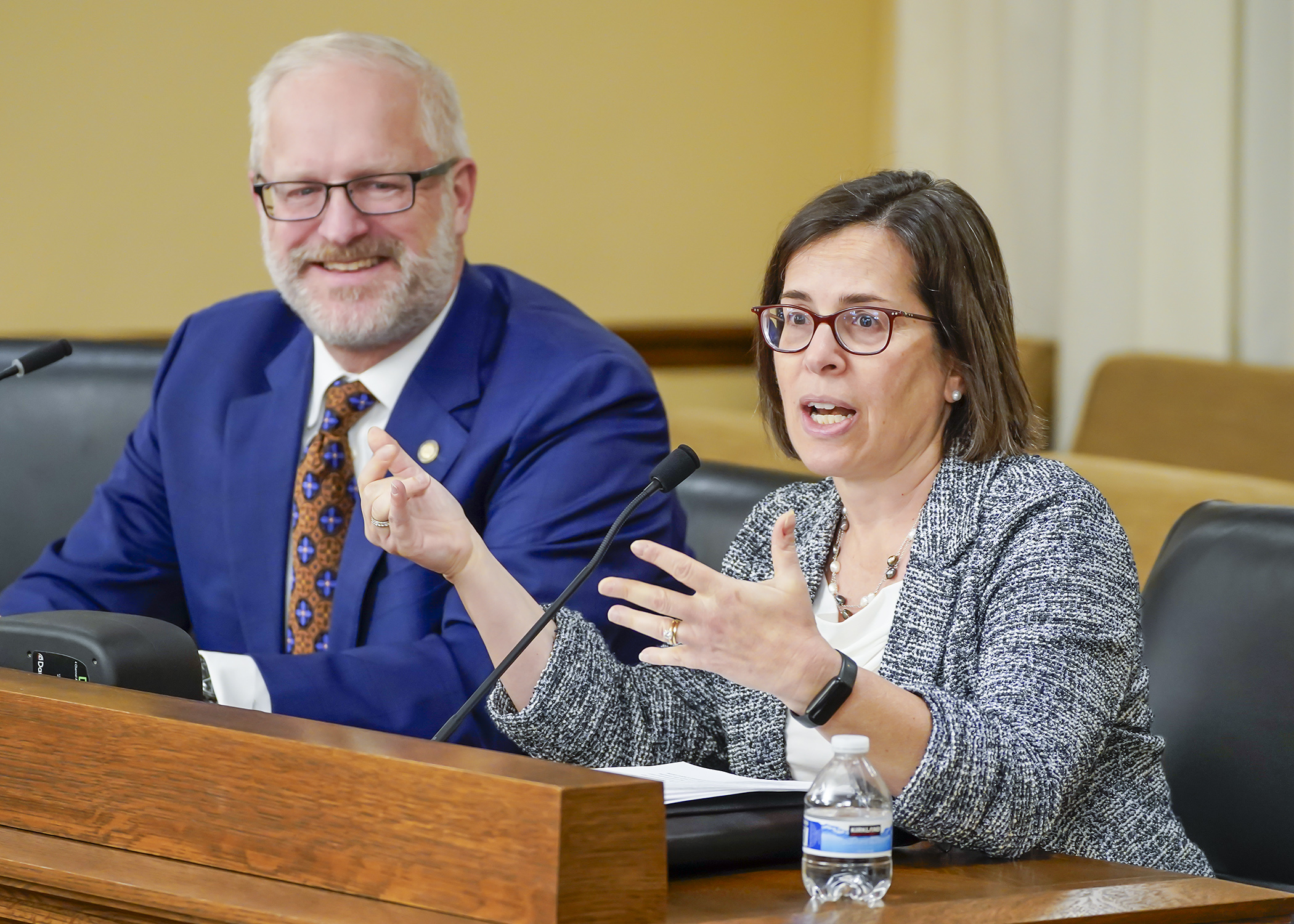First bill approved in 2025 aims to ensure stronger legislative oversight, fiscal management

DISCLAIMER: On Jan. 24, 2025, the Minnesota Supreme Court held that 68 members are necessary to constitute a quorum of the House. This webpage may reflect proceedings that occurred before that decision was issued and are no longer active. See Simon v. Demuth, No. A25-0066 (Minn. Jan. 24, 2025) (consolidated with Hortman et al. v. Demuth et al., No. A25-0068).
Fraud and potential waste within state government is an oft-touted Republican priority in the 2025 legislative session.
Emphasizing the topic, the first bill heard — and approved — by any House committee addresses the issue and aims to provide consistency.
Sponsored by Rep. Jim Nash (R-Waconia), HF3 would require a report by Feb. 1 each year from the nonpartisan Office of the Legislative Auditor to committees with jurisdiction over an entity subject to audit. The report would detail if identified recommendations by the office during the prior five years in a financial audit, program evaluation, or special review have been implemented.
Additionally, by Sept. 1 each year a department must report to the office “the implementation status of all recommendations identified in an auditor’s report during the prior five years.” Recommendations not implemented must also be noted along with the basis for that decision.
Approved Tuesday by the House State Government Finance and Policy Committee, the bill’s next stop is the House Ways and Means Committee.
The mission of the Office of the Legislative Auditor is to strengthen legislative oversight, improve accountability, promote good management and enhance program effectiveness.
“Many recommendations are made by the OLA that simply sit by the wayside … and agencies and organizations and administrations have chosen to effectively ignore them and hope that they go away,” said Nash, the committee chair.
“If we want to have a better government, if we want to make the most out of the taxpayer dollars that we are entrusted with wouldn’t it make the most sense to use the most nonpartisan organization that we have that makes recommendations to better process things we do here at the Capitol? … Everybody respects the OLA. We trust them, now let’s use the information.”
Legislative Auditor Judy Randall said her office conducts some follow-ups but does not have enough staff to thoroughly ensure recommendations are met.
Rep. Jon Koznick (R-Lakeville) said the bill is about better government, not blame.
“It’s about accountability for taxpayers, it’s about partnerships. … Those contributing to the revenues of the State of Minnesota expect certain levels of quality services that we provide, but also to be respectful of their precious resources.”
Related Articles
Search Session Daily
Advanced Search OptionsPriority Dailies
Speaker Emerita Melissa Hortman, husband killed in attack
By HPIS Staff House Speaker Emerita Melissa Hortman (DFL-Brooklyn Park) and her husband, Mark, were fatally shot in their home early Saturday morning.
Gov. Tim Walz announced the news dur...
House Speaker Emerita Melissa Hortman (DFL-Brooklyn Park) and her husband, Mark, were fatally shot in their home early Saturday morning.
Gov. Tim Walz announced the news dur...
Lawmakers deliver budget bills to governor's desk in one-day special session
By Mike Cook About that talk of needing all 21 hours left in a legislative day to complete a special session?
House members were more than up to the challenge Monday. Beginning at 10 a.m...
About that talk of needing all 21 hours left in a legislative day to complete a special session?
House members were more than up to the challenge Monday. Beginning at 10 a.m...